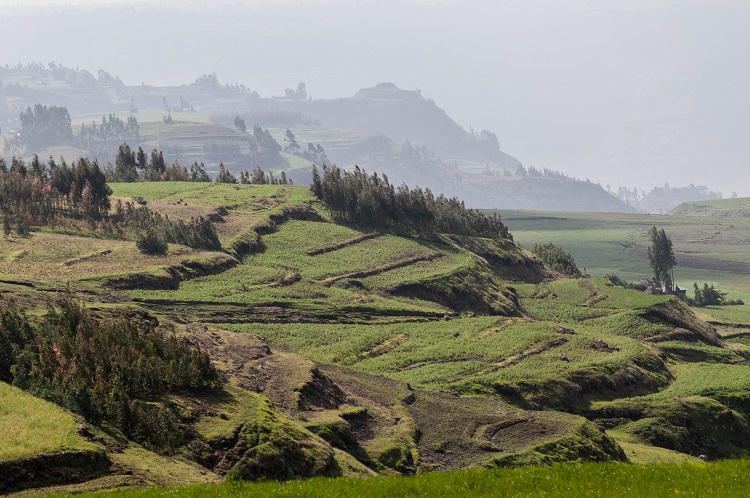
Finding a compromise in most situations can be complicated. But when the two sides involved represent hunger on one side, and our ecosystems on the other – life itself hangs in the balance. This scenario constitutes one of the major challenges facing the world today: the need to provide safe and nutritious food for a growing population, whilst protecting the natural environment, and doing so without increasing inequalities. This challenge is the subject of a new interdisciplinary project called ‘Social and Environmental Trade-offs in African Agriculture’ (SENTINEL), awarded under the ‘Global Challenges Research Fund’ (GCRF) – a £1.5 billion fund supported by the UK Government and implemented through Research Councils UK.
The GCRF research Fund is concerned with achieving the UN’s Sustainable Development Goals (SDGs), a set of 17 global goals with clear guidelines and targets for all countries to work towards ending poverty, protecting the planet and ensuring that all people enjoy peace and prosperity. Recognising that the SDGs are highly interconnected and that no one SDG can be addressed in isolation, the SENTINEL project deals with SDG2 – achieving zero hunger and SDG15 – conserving our ecosystem, without increasing inequalities – SDG10, focusing specifically on sub-Saharan Africa.
Professor Sir Mark Walport, Chief Executive designate of UK Research and Innovation, said, “In the same way that facing these global challenges requires a multi-national response, finding the solutions to them requires researchers from many disciplines to work together. The Global Challenges Research Fund makes that possible, and means that the UK’s world-leading researchers are able to get on with the job of working with each other and partners across the globe to make the world and society more sustainable.”
 Led by Dr Barbara Adolph of the International Institute of Environment and Development (IIED) in partnership with nine other leading research institutes from the UK and Africa, SENTINEL aims to close the gap that exists between researchers trying to understand the complex relationships between these goals, and governments, development agencies and private firms trying to implement the plans on the ground. Dr Moses Osiru of the Regional Universities Forum for Capacity Building in Agriculture (RUFORUM) and a co-Investigator on SENTINEL says, “For the first time, a project will look realistically at the trade-offs intrinsic in many development policies and strategies.”
Led by Dr Barbara Adolph of the International Institute of Environment and Development (IIED) in partnership with nine other leading research institutes from the UK and Africa, SENTINEL aims to close the gap that exists between researchers trying to understand the complex relationships between these goals, and governments, development agencies and private firms trying to implement the plans on the ground. Dr Moses Osiru of the Regional Universities Forum for Capacity Building in Agriculture (RUFORUM) and a co-Investigator on SENTINEL says, “For the first time, a project will look realistically at the trade-offs intrinsic in many development policies and strategies.”
The SENTINEL team is implementing the project in three African countries – Ethiopia, Ghana and Zambia – to help key decision makers understand the different ways of developing agriculture without impacting negatively on the natural environment and depriving people of the goods it has historically provided.
NRI’s engagement with the SENTINEL project is led by Adrienne Martin, Social and Institutional Development Specialist, who will be particularly involved with the capacity strengthening of UK and African partners to undertake policy- and development-relevant interdisciplinary research and to facilitate its use by stakeholders. NRI will contribute to research capacity assessment, identifying gaps and needs at individual and organisational levels in the three target countries, and the development of a strategy for African research capacity strengthening. This builds on NRI’s substantial experience in capacity strengthening of African research programmes. It is envisaged that lessons learned will be useful for the entire sub-Saharan Africa region.
Links: RCUK | GCRF
Project partner links: IIED | University of Oxford | University College London | University of Reading | Imperial College London | University of Ghana | Copperbelt University, Zambia | RUFORUM Africa | Ethiopian Development Research Institute | NRI’s Development Programme on Capacity Strengthening for Agricultural Development and Food Security

